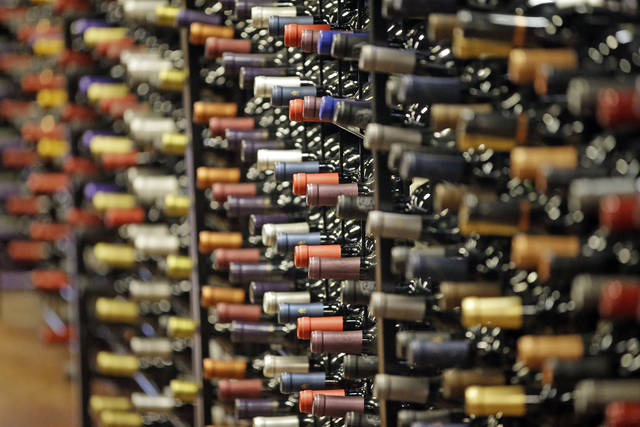https://naviga.triblive.com/news/pennsylvania/state-addiction-hotline-getting-fewer-calls-after-liquor-store-shutdown/
Pa. addiction hot line getting fewer calls after liquor stores shut down

State drug and alcohol officials braced for a deluge of alcohol-related phone calls when Pennsylvania two weeks ago closed all state-run wine and liquor stores.
“We were concerned that it could be a very big deal,” said Jennifer Smith, secretary of the Pennsylvania Department of Drug and Alcohol Programs.
So far, however, the department has seen fewer calls via the state hotline, 800-662-HELP, to seek help for alcohol-related issues, she said. In the past week, about 20 fewer alcohol-related calls have been answered by call-takers. Referrals for detoxification also have decreased.
She’s not sure why — the coronavirus pandemic could be playing a role, as people may be more concerned with health or family and friends and are having less interaction under stay-at-home orders. Some may have stocked up before Fine Wine & Good Spirits stores closed.
“I think it could be a host of different things,” Smith said. “We’re going to keep monitoring those statistics.”
Thousands of Pennsylvanians have alcohol abuse disorder and withdrawals can be life-threatening, Smith said. Gov. Tom Wolf ordered Fine Wine & Good Spirits’ 598 commercial locations and 13 licensee service centers to close March 17 in an effort to slow the spread of the coronavirus and covid-19, the disease it causes. On Wednesday, a limited number of online sales resumed.
Beer distributors remain open, and other opportunities exist for buying beer and wine, including at grocery stores, gas stations and microbreweries. Smith said withdrawal symptoms include tremors, hallucinations, seizures and changes in blood pressure.
“To mitigate this, it’s really imperative that individuals and their loved ones realize how to access services in Pennsylvania,” she said. “We can make sure they get directly connected to either the treatment provider or other resources that they really need.”
Wolf ordered “non-life-sustaining” businesses to close March 19. That shutdown was extended indefinitely on Monday.
“As more and more businesses are closing down, more encouragement of folks staying home, it will get more and more difficult to obtain alcohol,” Smith said. “So, it’s very possible that those calls will increase.”
The Pennsylvania Liquor Control Board reported about $29.9 million in sales on March 16, the day the closure was announced, and $20.3 million in sales the following day. The March 16 figure is likely the highest ever, but the agency’s sales data covers only the past 12 years, according to a spokeswoman.
Smith encouraged anyone with any type of substance abuse problem to call the hotline for help. Treatment providers are operating as essential services. Isolation during the coronavirus could be an opportunity for anyone with alcohol abuse disorder to seek help, she said.
“I can say with certainty that our field is equipped to handle this,” Smith said. “We are ready and waiting to get folks into the treatment and other resources that they need to help mitigate this. We are going to do our best to keep everyone out of emergency departments and hospitals, where possible, and make sure that they’re getting into our treatment programs.”
Copyright ©2026— Trib Total Media, LLC (TribLIVE.com)
